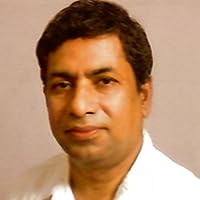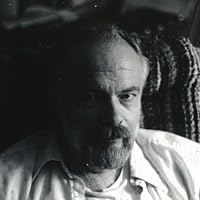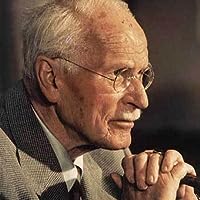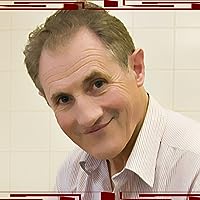Collective Unconscious Quotes
Quotes tagged as "collective-unconscious"
Showing 1-30 of 33

“Samadhi is the journey from individual to collective consciousness. The steps of Samadhi are the steps towards reaching the collective consciousness. In meditation, the more we radiate love, compassion, peace, harmony and tranquility, the more is our contribution towards the collective consciousness. The more we positively contribute towards the collective consciousness the more is our progress in Samadhi.”
― Yoga and Vipassana: An Integrated Life Style
― Yoga and Vipassana: An Integrated Life Style
“But only part of him was listening. Another part, even if it hadn't read Chomsky or Jung or Sheldrake—who had time for dead guys anyway?— at least had a basic understanding of what those guys had gone on about. Quantum nonlocality, quantum consciousness—Desjardins had seen too many cases of mass coincidence to dismiss the idea that nine billion human minds could be imperceptibly interconnected somehow. He’d never really thought about it much, but on some level he’d believed in the Collective Unconscious for years.
He just hadn’t realized that the fucking thing had a death wish.”
― Maelstrom
He just hadn’t realized that the fucking thing had a death wish.”
― Maelstrom
“The collective unconscious, the same as other transpersonal phenomena, is evidence that our mind is not an isolated entity but is constantly in touch with other minds as well as with the world around us. We are never entirely detached from the outside world; never entirely enclosed within our skin. Our mind and our body resonate with our environment, including other people in our environment. Our mind is coherent with the world, and when we do not repress the intuitions that link us with other people and with nature, we can become aware of our oneness with the universe.”
― Tryptamine Palace: 5-MeO-DMT and the Sonoran Desert Toad
― Tryptamine Palace: 5-MeO-DMT and the Sonoran Desert Toad

“Seed mantras are the seeding suggestions to awaken the deep collective unconscious.”
― Yoga The Science of Well-Being
― Yoga The Science of Well-Being

“When we see things from a different perspective, they either transform into fair features or slip under the cloak of the collective unconscious… overruled by the artistry and allure of the overall piece.”
― Nature's 1st Gem Is Green
― Nature's 1st Gem Is Green

“After his break with Freud, Jung pursued
the connection between the unconscious and
the occult and found example after example
of ancient mystical and occult symbols in
the dreams of people who had never encountered those symbols in waking life. He came to believe that below the repressed memories of individual life, there exists a collective unconscious full of archaic images that appear in myths, legends, and the traditions of occultism. By bringing those images into consciousness, it is possible to achieve individuation: a state of psychological balance and wholeness as far above ordinary sanity as neurotic conditions are below it.”
― The Occult Book: A Chronological Journey from Alchemy to Wicca
the connection between the unconscious and
the occult and found example after example
of ancient mystical and occult symbols in
the dreams of people who had never encountered those symbols in waking life. He came to believe that below the repressed memories of individual life, there exists a collective unconscious full of archaic images that appear in myths, legends, and the traditions of occultism. By bringing those images into consciousness, it is possible to achieve individuation: a state of psychological balance and wholeness as far above ordinary sanity as neurotic conditions are below it.”
― The Occult Book: A Chronological Journey from Alchemy to Wicca

“Georges Sorel, to whom fascism is so much indebted, wrote at the beginning of our century that all great movements are compelled by 'myths.' A myth is the strongest belief held by the group, and its adherents feel themselves to be an army of truth fighting an army of evil. Some years earlier, in 1895, the French psychologist Gustav Le Bon had written of the 'conservatism of crowds' which cling tenaciously to traditional ideas. Hitler took the basic nationalism of the German tradition and the longing for stable personal relationships of olden times, and built upon them as the strongest belief of the group. In the diffusion of the 'myth' Hitler fulfilled what Le Bon had forecast: that 'magical powers' were needed to control the crowd. The Fuhrer himself wrote of the 'magic influence' of mass suggestion and the liturgical aspects of his movement, and its success as a mass religion bore out the truth of this view.”
― Nazi Culture: Intellectual, Cultural and Social Life in the Third Reich
― Nazi Culture: Intellectual, Cultural and Social Life in the Third Reich

“In addition to common evolution, how much of the collective unconscious that we share has got to do with the fact that you and I happen to be composed of the same elements that were formed in stars that died millions, perhaps billions of years ago?”
― Random Cosmos
― Random Cosmos

“Cliches work by appealing to the collective unconscious. They are the Pachbel's Canon in D of writing, something familiar the talented can riff off to create a distinct work.”
― Pagan Standard Times: Essays on the Craft
― Pagan Standard Times: Essays on the Craft
“The purpose of ritual is to wake up the old mind in us, to put it to work. The old ones inside us, the collective unconscious, the many lives, the different eternal parts, the senses and parts of the brain that have been ignored. Those parts do not speak English. They do not care about television. But they do understand candlelight and colours. They do understand nature.”
―
―

“We and our environments form such interconnected cluster systems that mutually process information and alter it while exchanging it; we are all (humans) like a vast compound eye which shows a repetition of the motion of a single object but each cell reflecting slightly differently. (p.155)”
― The Exegesis of Philip K. Dick
― The Exegesis of Philip K. Dick
“
The Psychology of the Unconscious Processes
provided an exposition of the collective, suprapersonal, absolute unconscious—these terms being used interchangeably. Jung argued that one needed to separate oneself from the unconscious by presenting it visibly as something separate from one. It was vital to differentiate the I from the non-I, namely, the collective psyche or absolute unconscious.”
― The Red Book: Liber Novus
― The Red Book: Liber Novus
“Even if you never produce anything of social value, your relationship with the collective unconscious will justify your reason for being on the face of this earth.”
―
―

“Loss of roots and lack of tradition neuroticize the masses and prepare them for collective hysteria. Collective hysteria calls for collective therapy, which consists in abolition of liberty and terrorization. Where rational istic materialism holds sway, states tend to develop less into prisons than into lunatic asylums.”
― Aion
― Aion

“...Whoever goes into the mirror of the water will first see his own face[:] whoever goes to himself risks a confrontation with himself. [...]
Whoever looks into the water sees his own image, but behind it living creatures soon loom up.”
― The Archetypes and the Collective Unconscious
Whoever looks into the water sees his own image, but behind it living creatures soon loom up.”
― The Archetypes and the Collective Unconscious

“Primitive superstition lies just below the surface of even the most tough-minded individuals, and it is precisely those who most fight against it are the first to succumb to its suggestive effects.”
―
―
“The task of consciousness is to preserve the best possible relationship between the rational and irrational, the concrete and abstract, the literal and symbolic, and so on.”
― Dark Religion: Fundamentalism from The Perspective of Jungian Psychology
― Dark Religion: Fundamentalism from The Perspective of Jungian Psychology

“Cornellisen charged Jung for daring to take credit for discovering the 'collective unconscious' which is simply a misnomer and a poor conceptualisation of inner worlds known since millennia in India and even the mystical traditions of Europe”
― Battle For Consciousness Theory: The Battle for Consciousness Theory: A Response to Ken Wilber’s Hijacking of Sri Aurobindo and Other Indian Thought on the right.
― Battle For Consciousness Theory: The Battle for Consciousness Theory: A Response to Ken Wilber’s Hijacking of Sri Aurobindo and Other Indian Thought on the right.

“Fitting into the equation of humanity, we knead the poignancy of compassion and milk the headiness of creativity into ever more substantive knowing, pushing the collective, universal consciousness to expand moment by moment, molecule by molecule.”
― The Power of Amie Martine
― The Power of Amie Martine

“Clichés work by appealing to the collective unconscious. They are the Pachelbel’s Canon in D of writing, something familiar the talented can riff off to create a distinct work. I want to subvert tropes, but I have to make sure my audience understands the game first.”
― Pagan Standard Times: Essays on the Craft
― Pagan Standard Times: Essays on the Craft

“Because Western religion has created this image of the 'God of Good in Whom there is no Darkness,' a grand enantiodrama is occurring around the globe. The 'Light' has been overemphasized in religion, and they have sentenced its opposite characteristic to the dungeon of society's collective unconscious. Sometimes the repressed characteristic bursts forth wildly into daylight with a lethal force.”
― The Sun at Midnight: The Revealed Mysteries of the Ahlul Bayt Sufis
― The Sun at Midnight: The Revealed Mysteries of the Ahlul Bayt Sufis

“Our particular states of mind colour and frame the whole of our experiences. We live under the illusion that we all share the exact same world because *our language has evolved to pick out precisely the few aspects of our experiences that are common and shared, while ignoring those that are completely personal and idiosyncratic.*”
― Why Materialism Is Baloney: How True Skeptics Know There is no Death and Fathom Answers to Life, the Universe and Everything
― Why Materialism Is Baloney: How True Skeptics Know There is no Death and Fathom Answers to Life, the Universe and Everything

“It is a balm to our worried heart to know that whatever struggle we are engaged in is part of the universal human story.”
― Motherhood: Facing and Finding Yourself
― Motherhood: Facing and Finding Yourself

“Dy5topia in the context of this book is a very real place, with very real “inhabitants'', but to understand Dy5topia you must first look closely at our world. Like the fisherman’s net that allows so much water to spill through, catching only the aquatic life, so too does Dy5topia collect only the fear of our world. Dy5topia is our dark reflection and a manifestation of our collective fears, and so its structure is created and maintained by our fear.”
― DY5TOPIA: A Field Guide to the Dark Universe of Chet Zar
― DY5TOPIA: A Field Guide to the Dark Universe of Chet Zar
“Education and Knowledge stored in a society is directly related to the varieties of existential fears that the particular society had in the past.”
―
―
“The collective unconscious is the collective mind of the universe and is related to every individual mind. The interface of the collective unconscious and consciousness is the personal unconscious, populated by complexes. The personal unconscious is the liminal zone between individual consciousness and the collective unconscious, between man and God.”
― Transcendental Magic: The Rise of the New Magicians
― Transcendental Magic: The Rise of the New Magicians

“You cannot grow spiritually by repressing the "dark" side. To grow as a person, it is imperative that you respect both poles of the psyche. The unity of the self encomásses light and dark poles. Since the Shadow is an inherent and necessary part of the human being, the Western religious standard causes individual to be split from themselves. It is essential for those on the spiritual way to integrate the shadow. Because Western religion has created this image of the "God of Good in Whom there is no Darkness," a grand enantiodrama is occurring around the globe. The "Light" has been over-emphasized in spiritual paths, and they have sentenced its opposite characteristic to the dungeon of society's collective unconscious. Sometimes the repressed characteristic bursts forth wildly into daylight with a lethal force.”
― The Sun at Midnight: The Revealed Mysteries of the Ahlul Bayt Sufis
― The Sun at Midnight: The Revealed Mysteries of the Ahlul Bayt Sufis

“For Jung, the collective unconscious can simply be described as an envelope of wisdom embracing everything in creation, humans included. For Jung, it is essentially of God and may well be considered as the wise and enduring power of divine Spirit infused throughout the whole of creation….Long dismissed as an esoteric illusive fantasy, the collective unconscious begins to look very similar to the notion of the creative vacuum of pure space, or modern physics.”
― Ancestral Grace: Meeting God in Our Human Story
― Ancestral Grace: Meeting God in Our Human Story
All Quotes
|
My Quotes
|
Add A Quote
Browse By Tag
- Love Quotes 97k
- Life Quotes 75.5k
- Inspirational Quotes 72.5k
- Humor Quotes 43.5k
- Philosophy Quotes 29.5k
- Inspirational Quotes Quotes 27k
- God Quotes 26k
- Truth Quotes 23.5k
- Wisdom Quotes 23.5k
- Romance Quotes 23k
- Poetry Quotes 22k
- Death Quotes 20k
- Happiness Quotes 18.5k
- Life Lessons Quotes 18.5k
- Hope Quotes 18k
- Faith Quotes 18k
- Quotes Quotes 16.5k
- Inspiration Quotes 16.5k
- Spirituality Quotes 15k
- Religion Quotes 15k
- Motivational Quotes 15k
- Writing Quotes 14.5k
- Relationships Quotes 14.5k
- Life Quotes Quotes 14k
- Love Quotes Quotes 13.5k
- Success Quotes 13.5k
- Time Quotes 12.5k
- Motivation Quotes 12k
- Science Quotes 11.5k
- Knowledge Quotes 11k


